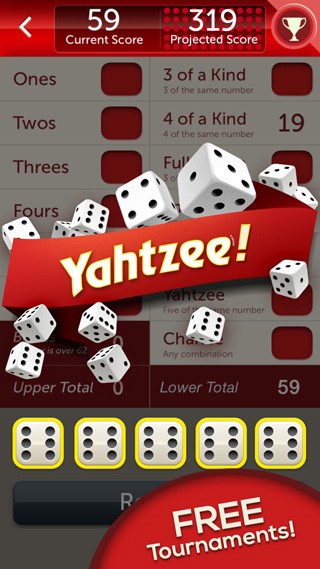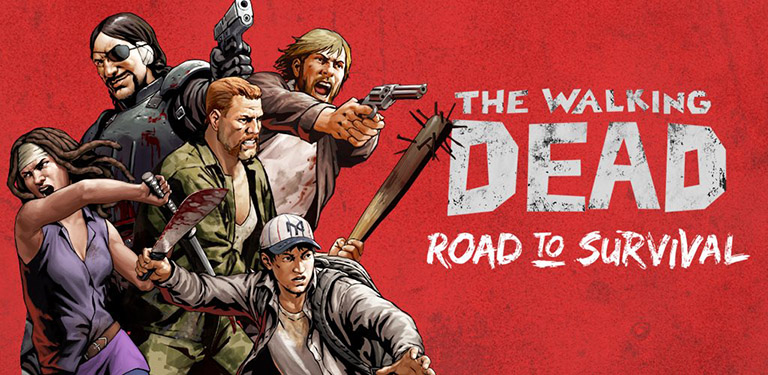
Over the past few years, many of the mobile games industry’s largest publishers have shut down their third-party publishing operations. Add that to the ever-growing checklist for a successful game launch — localization, app store featuring, monetization, IP licensing and live ops to name just a few — and developers are in a situation where they can benefit from publishers more than ever, but committed publishers are hard to find. Scopely’s Henry Lowenfels observed this shift from the state of publishing in 2012 to now in his Casual Connect Tel Aviv 2015 lecture. “The conversation has changed,” Henry said. “It’s turned from ‘Do I really need a publisher?’ to ‘I really need a publisher … if I want to be a top-50-grossing game.'” Watch Henry’s full session below for details on Scopely’s strategy.

Gamesauce: Tell us about the work you do at Scopely. How did you come to work there?
Henry Lowenfels: I’m the VP of Business Development at Scopely, and I oversee our development and strategic partnerships. While Scopely is my first job squarely in the gaming industry, I’ve been a gamer since I was 5 years old and have spent my entire 10+ year career in the entertainment industry. The throughline in my career is that I’ve always been in a business development role working with content creators to bring their ideas to life and make a few bucks along the way — whether it’s a movie, advertising campaign or video game.
GS: What is your favorite thing about your job?
Henry My favorite thing about my job is that I’m fortunate enough to work with some of the most creative and passionate game developers in the world. The enthusiasm and energy of the people I work with is contagious, and it’s inspirational to be a part of the process of making amazing games. The fact that my job requires me to search for “the next big thing” in the world of gaming couldn’t be more exciting, and no two days are alike.

GS: How have your past career experiences been helpful to you in your current position?
Henry: As I mentioned, I’ve spent most of my career working with highly creative people, turning their artistic ideas into fully realized products, and creating businesses around these products. I’m not a “creative” myself, so to speak, but I’ve developed an expertise in engendering trust with content creators and serving as the business person who helps them realize their vision. While the vocabulary has changed as I’ve moved from film to mobile games — now I talk about SDKs and live operations as opposed to screenplays and cameras — the nature of the conversations I have has largely remained the same.
GS: What inspired you to pursue this career?
Henry: My parents gave me an 8-bit Nintendo for my 6th birthday, and I’ve never looked back. I consider myself to be an entertainment junkie — movies, TV, games, sports, music, literature, you name it — and I feel incredibly grateful to have a job in which I’m able to create things that people enjoy in their free time.
GS: How did you become involved in the game industry? How did you make your start? What do you find to be the most fun part?

Henry: After years of working in the film industry, I became frustrated with an industry in which the biggest players are most often making the safest choice as opposed to pushing for innovation. I began talking to all the smartest people I knew in LA, and I reconnected with a friend who was an early employee at a stealthy startup called Scopely. While Scopely had only released two mobile games and several Facebook apps, I immediately understood the vision: to create some of the largest genre-defining games appealing to both casual and core gamers, working with some of the top development partners in the world. Despite the fact that it was not obvious to many in 2012 why publishers would be necessary (“Why wouldn’t I just sign on to iTunes Connect and self-publish?”), coming from a world in which content creators and distributors/marketers have distinct but complementary roles, I loved the approach. I believed strongly that the mobile market would evolve such that publishers would become as integral as they are in literally every other entertainment medium.
The most fun part of working in the game industry? I get to play games … for work! If I could go back and tell my 10-year-old self that my days of reading Nintendo Power and amassing a collection of hundreds of cartridges and discs would actually make me a better professional, my mind would have been blown.

GS: What are some of the challenges you have faced in your current position? How have you overcome these challenges?
Henry: The biggest challenge in my current role at Scopely is that we focus on putting out only the highest-quality experiences for our players, which means only a few games a year, but I see an amazing number of promising ideas and developers. Passing on a game that I genuinely believe in is very difficult, and the way I’ve overcome this is that I’ve forced myself to be a dispassionate thinker, putting my emotional reaction aside and being more strategic and surgical in my decision-making process.
GS: What do you do in your free time? What are your hobbies?
Henry: As a father of two young boys, Rocky and Mickey, I love spending time as a family, whether we’re wrestling on the floor, watching the Yankees, or reading Dr. Seuss. After the little guys go to sleep, my wife and I like to cook elaborate meals and binge watch TV (most recently Narcos and Halt and Catch a Fire). I’m also an avid long-distance runner, having completed 10+ marathons and even a hilly 50-mile ultra-marathon through the mountains of Northern California. And I’m a huge sports fan (NY Yankees and NY Giants).
GS: If you were not in this industry, what would you be doing?
Henry: If I wasn’t in gaming, I’d be doing something else in entertainment — and I use the term “entertainment” broadly. I’d probably try to find a way to work in the world of sports in some form.
GS: What was your dream job as a child?
Henry: I wanted to be a professional baseball player, and specifically a center fielder for the NY Yankees. That’s why I named my second son Mickey (after Mickey Mantle).
GS: What has been the proudest moment of your career so far? What led to this moment happening?
Henry: My proudest moment was receiving Scopely’s “Inspirational Beast of the Year” award in 2014. In a company composed of some of the smartest and hardest-working people I’ve ever met, the fact that my peers voted to give me this honor is incredibly meaningful.
GS: What do you think will be the next big trend in the industry in the next three to five years? How are you incorporating this trend into your future plans?
Henry: I believe that games are only going to continue to get more social. A big part of the reason people love games are the connections they foster between friends, and as technology and connectivity continue to improve, new social mechanics will continue to come to market. At Scopely, we place a premium on social experiences, and we’re pushing to continue innovating in this area and providing our users with fresh ways of interacting with others in the game. A great example of this is our most recent game launch, Walking Dead: Road to Survival, which saw 4 million downloads in its first week. Road to Survival is the first to market a full social experience in the TWD universe, whereas other TWD games are a linear storyline. This game is a blend of RPG and MMO — players can progress on a linear RPG adventure and then evolve to player chat, head-to-head PVP battles, tournaments, and join or create player alliances with a worldwide community of fellow fans, friends and gamers battling each other for resources and fame — all taking place in the world of The Walking Dead.
GS: What has been the most effective form of marketing for your company?
Henry: It’s nearly impossible to define the most effective form of marketing for our company — and I wish I could because then we’d have a secret trick we could keep going back to! Instead, our marketing strategy is a blended approach of traditional UA alongside less traditional campaigns with a variety of media platforms, apps, on TV, with social influencers and even via physical campaigns around real-world events. One of the tactics that distinguishes Scopely from a marketing perspective is that we believe in launching games as true cultural events. While most of the industry engages in what I would call “chase-marketing” — releasing out a game, getting a sense for the LTV, and then determining where to spend based on which channels are most profitable — we try to turn that approach on its head. Given the way we structure our test launches and the massive amounts of user data available from which to base our decisions, we believe in front-loading our marketing and pushing our games into the app stores with a massive bang.

GS: What do you look for in a game?
Henry: I’m a big believer in looking as closely at the team behind the game as at the game itself. In today’s world of free-to-play games, even a great idea, fun mechanics and beautiful artwork only takes you so far. To achieve category-leading success, the game needs to be supported as a service by a team that understands how to scale the product and keep an audience engaged for years.

To answer your question a bit more specifically, I’m a believer in taking proven mechanics and adding slight innovation layers on top of systems that we’ve seen work in the past. I don’t believe that cloning or fast-following is the right approach, but, at the same time, creating a brand new mechanic with a new IP is incredibly risky and most often does not work.

GS: Are you a gamer? What are some of your favorites and why?
Henry: I’m a huge gamer. These days almost all my gaming is on mobile both because the play patterns better fit my lifestyle and because I try to be a student of the mobile games market. I’ve played games on a variety of platforms over the years, and while I’m currently addicted to Scopely’s Yahtzee with Buddies and The Walking Dead: Road to Survival, some of my favorite games and franchises include Monkey Island, The Legend of Zelda (especially Ocarina of Time), Final Fantasy (FFIV is my favorite), Goldeneye, and John Madden Football (from the original on Genesis all the way to today’s mobile version).
GS: What is important to keep in mind when working with developers?
Henry: It’s important to understand that developers are artists. While business-oriented people like myself tend to focus on revenue numbers and KPIs, it’s crucial to recognize that games are inherently pieces of art. No one sets out to make a bad game, and even when a product fails or isn’t fully realized, developers and designers have poured a part of themselves into the game. I have a huge amount of respect for the creative process — games should be treated like art, and developers are the craftsmen who breathe life into them.
GS: What should developers look for in a publisher?
Henry: Passion for the product. If a publisher isn’t as excited about the game as the developer, there can never be true alignment between the two parties.
GS: Why is it beneficial to work with a publisher?
Henry: A good publisher enables a developer to focus on what they do best: making amazing games. I believe that the primary role of a developer should be to create a top-notch user experience, and publishers can enable developers to block out distractions and concentrate on the incredible challenge that is designing a fun game.
When answering this type of question about the benefits of a publisher, I usually draw a parallel to Hollywood. Vince Gilligan, the creator of my favorite TV show of all time, Breaking Bad, would be crazy to think he could have written and produced such an incredible show if he also had to worry about distribution, marketing, advertising, etc. Instead, he was able to focus on telling the best story possible and creating an entertainment experience unlike anything else on TV. That’s the type of focus and dedication it takes to make a category-leading game in today’s market, and that’s the way we empower our developer partners.
Comments









